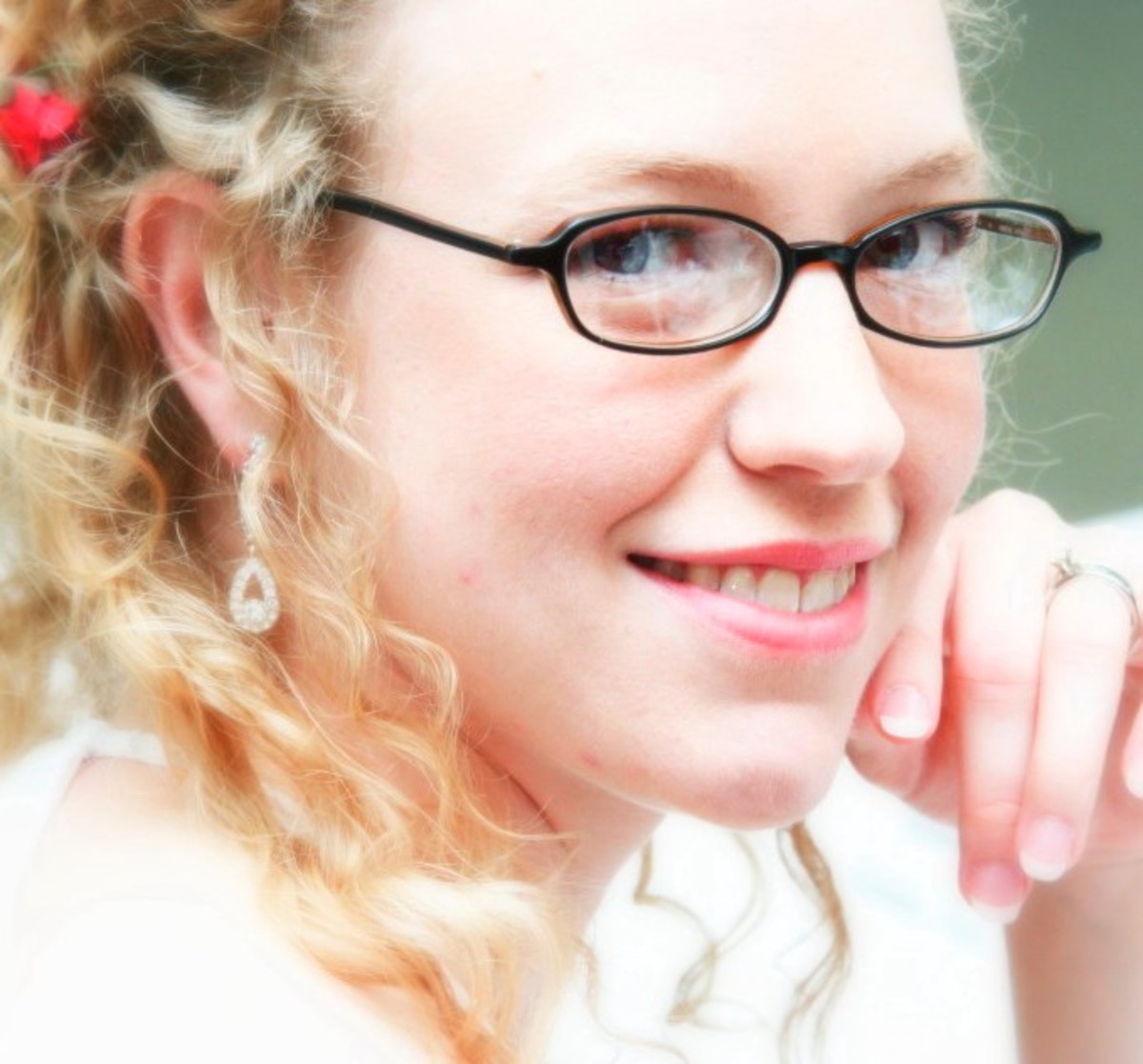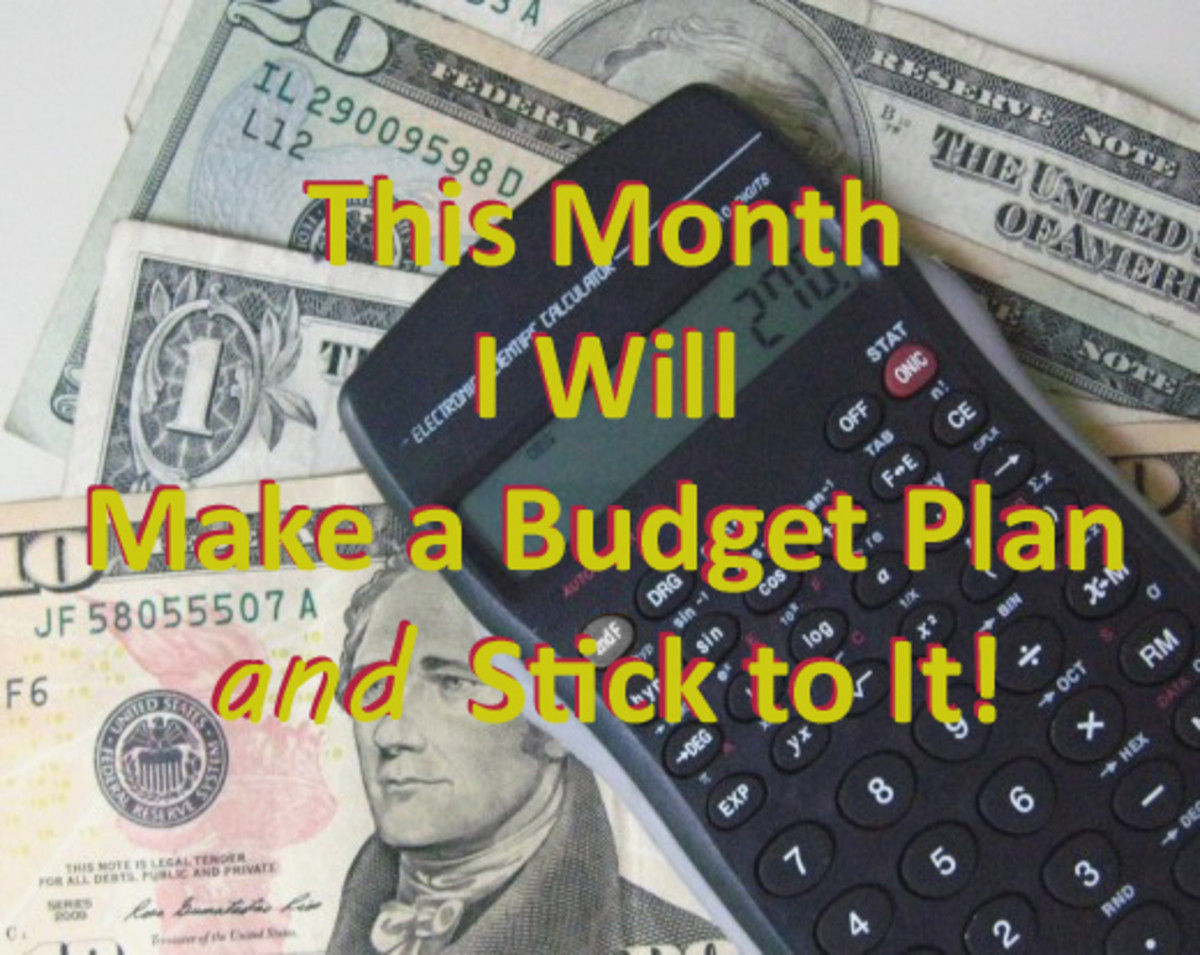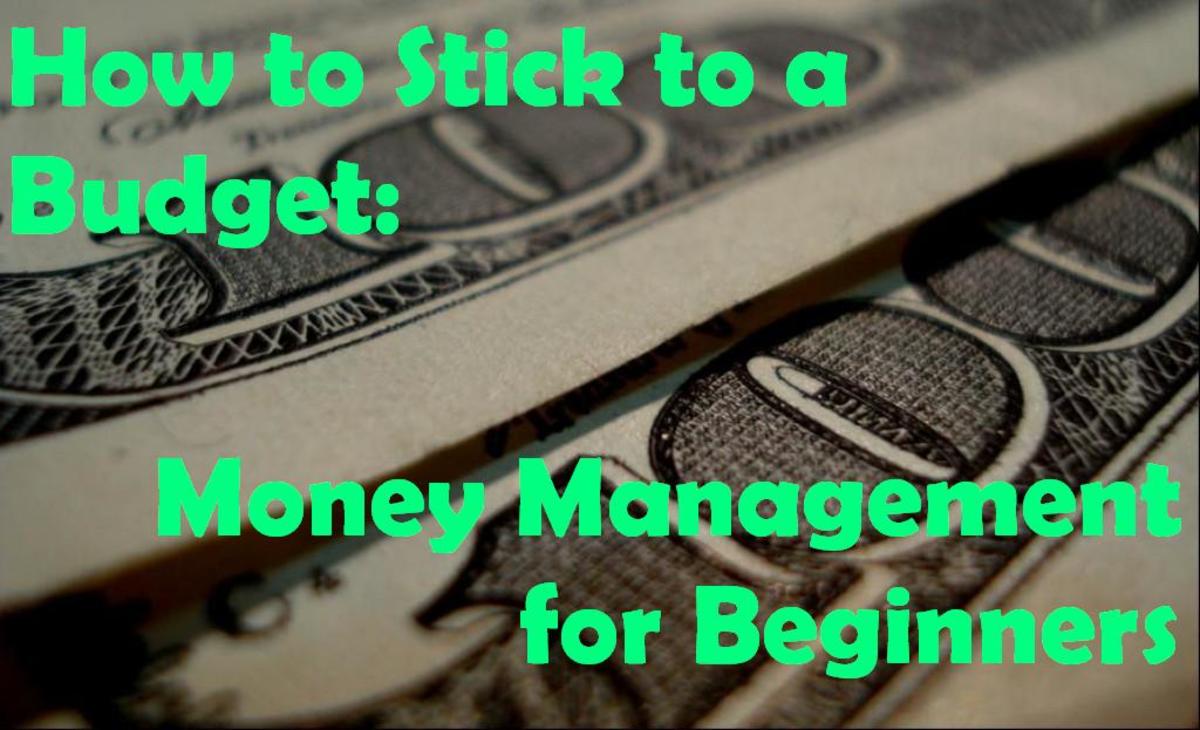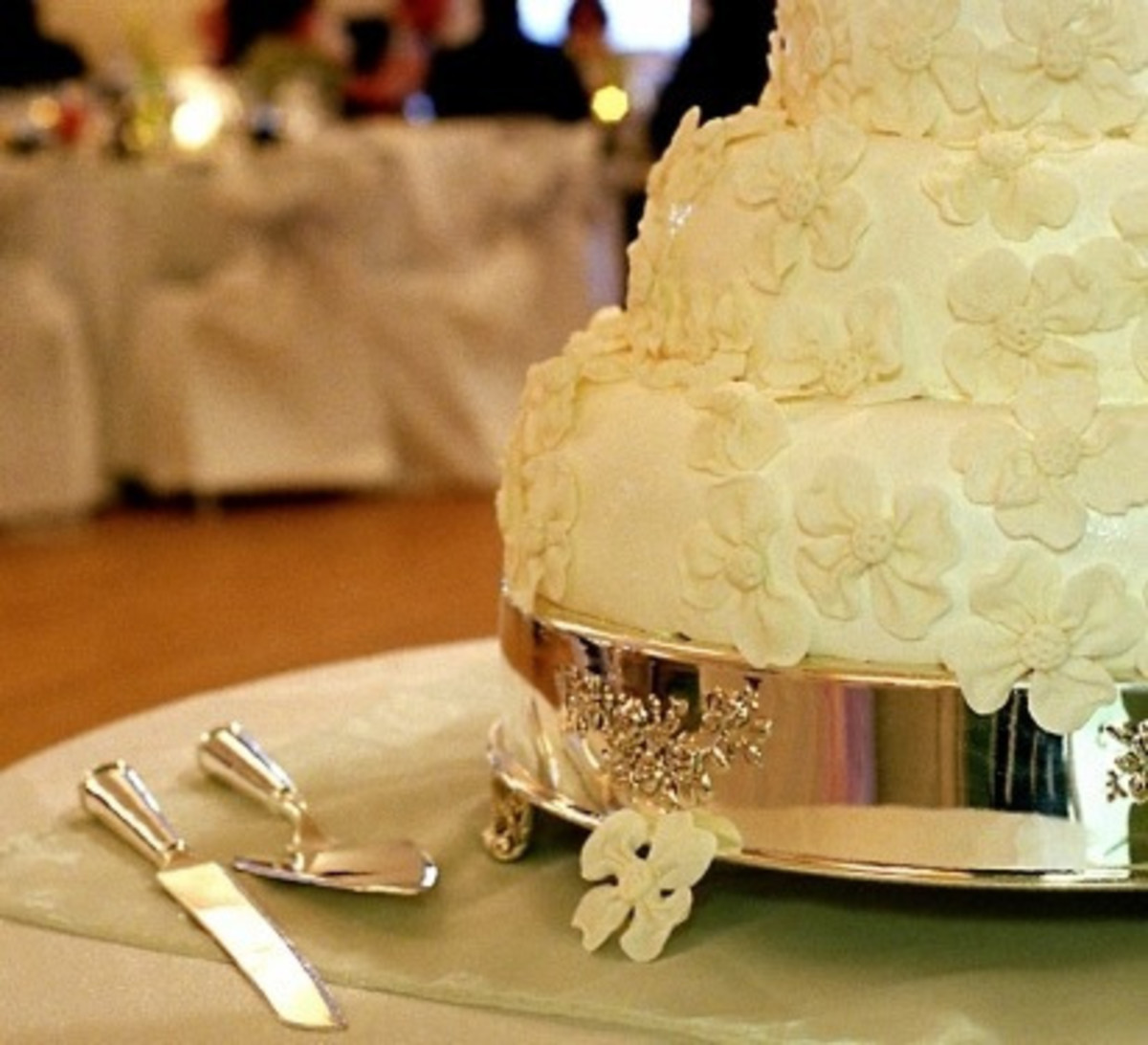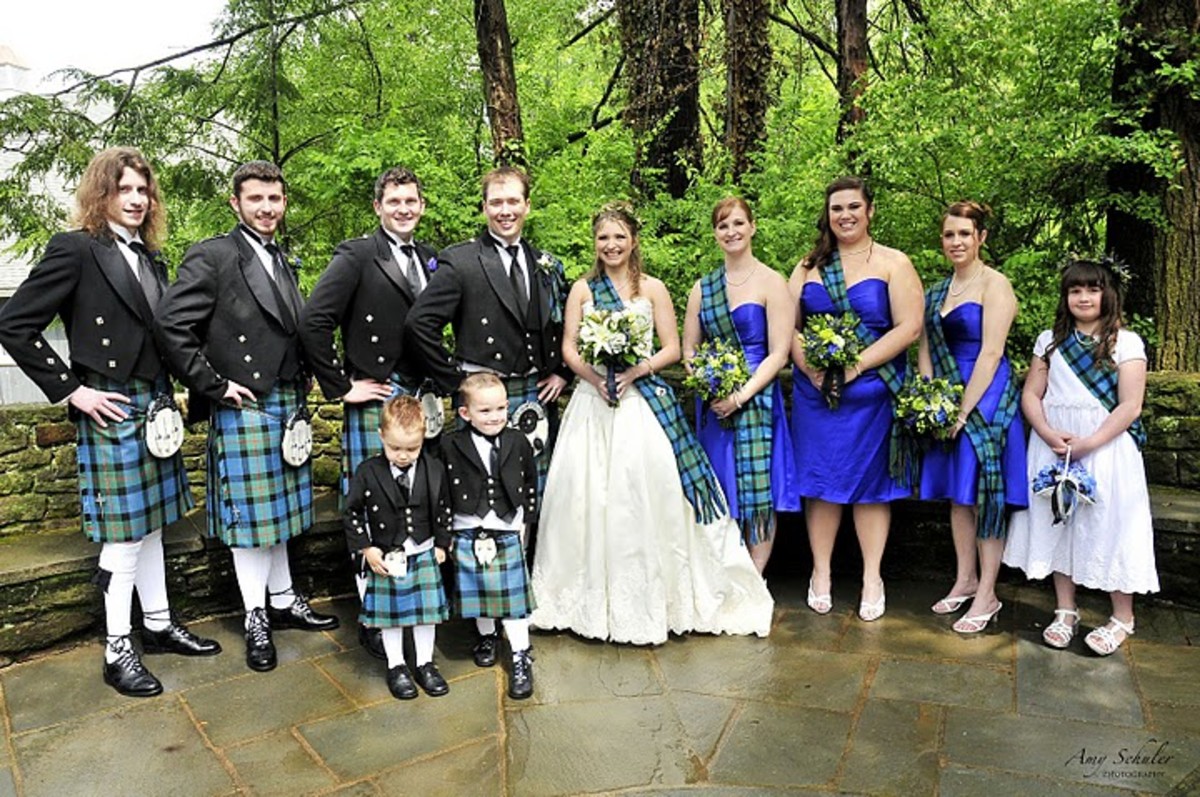Creating an Ideal Budget for Your Wedding
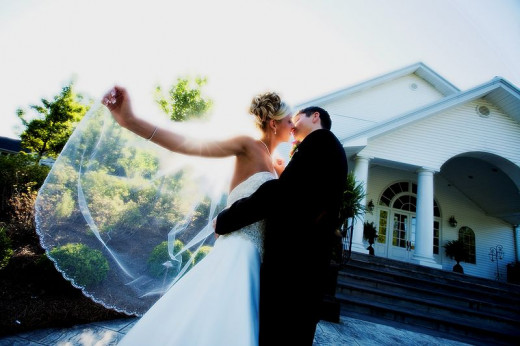
Most wedding budget how-tos will likely discuss nothing but software, computers, percentages and numbers. This article will be a little bit different as I aim to tell you the real story. Most newly-engaged brides think fun, fun, fun! They think wedding planning will be all about cakes and flowers, trying on wedding dresses with their friends, and tasting tons of great food from catering companies. Most grooms assume that after the proposal is over, they've done their job and the rest will be handled by the bride.
The wedding budget is the very first topic every couple has to wade into on their journey into wedding planning, and ultimately marriage. The truth is that, like marriage, wedding planning is mostly about communication. Without it, everything else will come crumbling down around you. Couples, remember that weddings are about both people. Guys have just as many dreams about their wedding day as ladies. Although, these dreams but be a little different. Let's take this process in steps.

Talk to Each Other About Your Dreams and Desires
My husband and I started talking about our ideal wedding really early in our relationship. By talking we soon discovered that we both wanted an outdoor wedding, off of a cliff side, overlooking the water. He wanted to get married in California and I hadn't really thought much about it. Sure we discussed a variety of different venues over the course of time, but being that we ultimately wanted the other to be happy, it was easy for each of us to come to a consensus.
Think about some of these issues when having your budget discussion: Do you want to get married indoors or out? Would you like to have your ceremony and reception at the same location? Do you already have a specific venue or type of venue in mind? What about food, flowers, wedding décor, music . . . . ? Ask each other if you have any dreams about your wedding day. Is there any area or item that's truly important to you? Is there anything you're worried about?
My husband was worried that I would stress myself out too much (he was constantly reminding me to enjoy every moment), that it would be too windy and the gazebo we chose outside wouldn't work, and even that I would be wearing too much makeup. With these things in mind ahead of time, we were able to make sure that we were prepared and could take care of them before they happened. Funny enough, I was more worried that no one would show up and that my family would cause problems for us. It turns out that I didn't even remember who came and who didn't and I shouldn't have allowed my family to attend knowing that there would be issues. (This is a tough decision just about every couple has to make.)
By talking everything over ahead of time, and allowing both parties the freedom to share openly, that leaves the door open for great communication throughout your wedding planning.
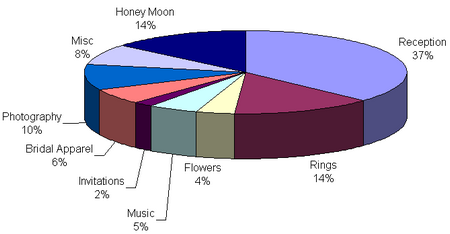
Determining How Much Money You Have to Spend
After you've laid out your plan together of what you want for your wedding and what's truly important to each of you, now you can determine what you have to spend. Are you going to pay for the wedding yourselves or do you have help from one or both of your families? You should find out. If your families want to contribute, you'll want to check out my next hub Families Helping You Pay for Your Wedding? You'll Want These Tips.
When determining this number (taking into account any source of money you have to put towards your wedding), consider any money you might have saved up for this purpose, or even how much you can reasonably save in the coming months before your wedding. Plan to have everything paid off completely at least one month before the big day.
When you think you have a good number that you're both happy with, I highly suggest employing Microsoft Excel, or some other free spreadsheet program, so you can input your percentages and see how much you have to work with in each planning category. (Obviously if you don't plan on spending money in a particular category, like transportation, don't include it on your spreadsheet.) You can then move money around and change percentages until you have a plan you can both agree on. Make sure to leave at least 10% for miscellaneous expenses that come up unexpectedly.
Now you can consider how to track any money being spent.
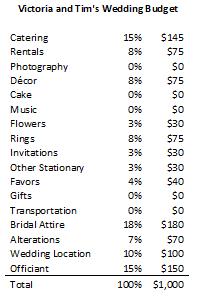
Discuss How You're Going to Track Spending
There are tons of different tracking systems you can put into place to make sure you know exactly where you're money is going and don't overspend.
Envelope System - Some couple use this system for their household expenditures. It can also be used for your wedding. Especially if you have the money ahead of time, the envelope system is great! This system consists of creating the same number of envelopes as you have wedding categories. Label each envelope with one category (i.e. flowers) and fill it with the amount of money you've set aside for it. When you run out of money for that wedding category, you simply stop spending. Any money leftover you can set aside just in case until after the wedding.
Separate Wedding Account - Many couples, especially if you are slowly saving the money for your wedding over time, or are both contributing from your own paychecks, create a separate checking or savings account just for your wedding. The way this works, money for the wedding gets deposited in, and as the two of you spend money on your wedding you'll only take from this account. When you run out of money in the account, you simply run out. This will require a great deal of communication on both of your parts.
My husband and I simply wanted to spend the smallest amount possible, so we created a spreadsheet with a preliminary budget of $1,000. This way we at least had a guideline of how much we could spend in each area. As we both searched for the best deals and spent money (within the budget of course), we would adjust our spreadsheet to reflect our expenditures. In the end, we were able to see how much we spent and how much we saved. Our total wedding cost ended up being $971 total. See how we did this for yourself!
Without sitting down and figuring this out together ahead of time you could possibly end up deep in debt (maybe to friends and family, but usually on credit cards), which will haunt you for years after your wedding. No one wants to start their marriage in debt, especially when problems with finances are the main cause of divorce in this country. You will need to figure out your finances in order to have a successful marriage anyway.
Why not get started early!!
© 2013 Victoria Van Ness



